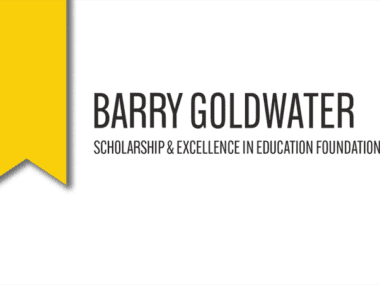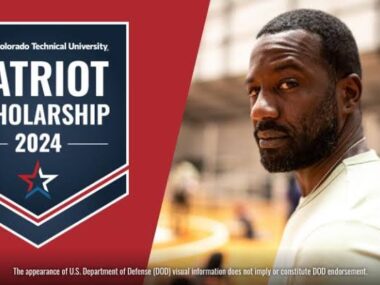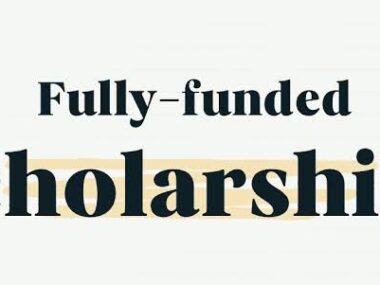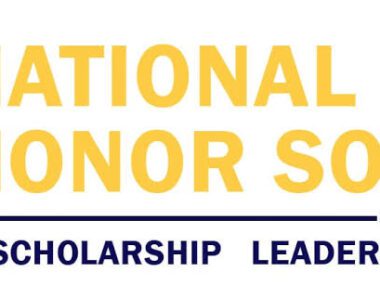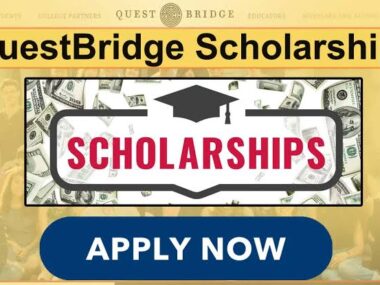An Elite Opportunity for 2024
The Coolidge Scholarship is a prestigious undergraduate program that provides talented American students with the opportunity to serve in public office. With its focus on developing leadership skills and promoting civic engagement, the Coolidge Scholarship can open doors for ambitious high school students as they prepare for their future careers.
What is the Coolidge Scholarship?
The Coolidge Scholarship was established in 2000 through a grant from the Calvin Coolidge Memorial Foundation. It is named in honor of the 30th president of the United States, Calvin Coolidge. As president, Coolidge believed strongly in limited government and civic participation.
The core mission of the Coolidge Scholarship is to identify and develop outstanding young people with a demonstrated commitment to America’s founding principles of limited government, individual liberty, and economic freedom. Each year, the program selects approximately 25 high school seniors from across the U.S. to receive the scholarship based on merit.
Benefits of the Coolidge Scholarship
Coolidge Scholars receive significant benefits, including:
- Full tuition, room, and board for four years of undergraduate study at any accredited U.S. college or university. This amounts to over $300,000 in funding over four years.
- Intensive leadership training through national conferences and seminars with influential leaders.
- Mentorship and career guidance from Coolidge Scholarship alumni and other civic leaders.
- Networking opportunities and experience working on policy issues. Scholars participate in internships in Washington, D.C., during the summer after their first and second years of college.
- Individualized academic guidance from the Coolidge staff to help Scholars map out degree plans focused on public policy, history, politics, and other related subjects.
With full funding for a prestigious undergraduate education plus invaluable leadership experiences and career development resources, the Coolidge Scholarship is a life-changing opportunity for motivated high school seniors.
Eligibility Requirements
Not just any high school senior can apply for the Coolidge Scholarship. There are several eligibility criteria applicants must meet:
- Possess US citizenship or be a lawful permanent resident.
- Be entering their final year of high school at an accredited public, private, parochial, or home school. Students can apply during 11th grade but must still be entering 12th grade in the year of the application deadline.
- Demonstrate a proven track record of and continued commitment to community service and exceptional leadership.
- Have a minimum weighted elementary school GPA of 3.7 on a 4.0 scale or its equivalent.
- Achieve qualifying scores on either the ACT or SAT college admissions test.
- Receive strong recommendations from teachers, mentors, or community leaders attesting to the candidate’s leadership abilities and character.
Beyond grades and test scores, the Coolidge selection committee is most interested in candidates who exhibit excellent written and verbal communication skills, a strong work ethic, initiative, integrity, and a desire to make a positive impact through public service.
The Application Process
Applying for the Coolidge Scholarship is competitive, so candidates need to present themselves as outstanding individuals through a multi-step process:
- Online Application – This includes basic biographical information, academic transcripts, activities/awards, essays, and letter of recommendation requests. It is submitted in the fall of the candidate’s senior year.
- Video Interviews – Selected semi-finalists participate in 30-minute video interviews in early 2023 to discuss their application in more depth.
- Washington Weekend – Approximately 50 finalists are invited to spend a weekend in Washington, D.C., in late March 2023 for an orientation and interviews. Expenses are covered.
- Notification – Candidates are notified of the selection committee’s decision by the first week of April. Scholars attend a special ceremony at the White House.
The application itself mainly consists of essays where candidates describe why they deserve the scholarship based on their character, leadership experiences, and passion for public policy/national issues. Solid writing skills and storytelling ability are important for standing out.
Sample Candidate Profile
To give a sense of the caliber of students who succeed, here is a profile of a past Coolidge Scholar:
- GPA: 4.3 weighted on a 4.0 scale, ranked 1st in a class of 500 students.
- Test Scores: 35 ACT composite, 1570 SAT.
- Extracurriculars: Student government president, debate team captain, national honor society president, volunteer tutor, interned for state senator.
- Essays: Discussed their commitment to leadership gained through organizational roles and desire to one day serve in elected office to improve education policy.
- References: Teachers praised the candidate’s initiative, integrity, strong communication skills, and ability to motivate diverse groups of peers.
- Interview: Commander presence, articulate in discussing policy stances and qualifications convincingly. Demonstrated poise under pressure.
Meeting the academic and leadership thresholds is critical, but being a talented communicator who can inspire confidence in one’s goals and character often separates finalists. This gives a sense of the well-rounded, top-tier candidates typifying past Coolidge classes.
Success Stories of Coolidge Scholars
Each year, the Coolidge Scholarship transforms the lives of outstanding students by opening doors to incredible educational and professional opportunities. Here are a few highlights of what some past Scholars have accomplished:
Jillian McLaughlin (Class of 2010)
- Completed a BA in Government at Harvard University and a master’s in public policy at Duke.
- Led White House campus engagement initiatives and now directs youth empowerment programs.
- Published opinions in major newspapers on modernizing civic participation.
Peter Meijer (Class of 2003)
- Graduated first in his class from Business School at Columbia University.
- Elected to U.S. Congress in 2020 at age 33 to represent Michigan’s 3rd district.
- Active on veterans issues, having served in Iraq with the 101st Airborne Division.
Brian Hooks (Class of 2004)
- Earned a BA in Government from Harvard and a law degree from Yale.
- Served on the White House Domestic Policy Council and on presidential campaign staff.
- Founded a successful charter school network benefiting underserved communities.
These Coolidge alumni demonstrate the remarkable potential unleashed through this program. Their inspiring stories embody the values it seeks to advance of cultivating a new generation of citizen leaders equipped to serve the public good.
Pathways to Public Service Careers
A core goal of the Coolidge Scholarship is to prepare youth for careers in public policy and government. The program’s resources and requirements are strategically designed with that end in mind:
Academics
Coolidge Scholars must pursue coursework related to government, history, economics, or political philosophy. This provides a knowledge base for policy-oriented careers.
Internships
Summer internships in Washington expose Scholars to the professional settings and networks crucial for success in fields like law, consulting, and elected office.
Leadership Training
Conferences develop skills applicable to organizational management, diplomacy, negotiations, and coalition building in the public sphere.
Mentorship
Connections with prominent alumni and advisors pave the way to top graduate programs and early career roles, shaping legislation and programs nationwide.
For ambitious students seeking impact beyond private sector work, the Coolidge Scholarship offers a direct pipeline to the most competitive roles in national politics and governing our society for the benefit of all.
Frequently Asked Questions
Here are answers to some common questions about the Coolidge Scholarship:
1. What majors are best suited for the program?
While any major can be appropriate, Coolidge recommends fields like political science, history, economics, public policy, or pre-law to best prepare for policy careers. Engineering or sciences paired with relevant minors are also viable options.
2. What are the chances of being selected?
Approximately 2,000 students apply each year for 25 spots, so the acceptance rate is around 1-2%. Candidates with exceptional grades, leadership experiences, and communication skills have the best odds.
3. Does one need DC internship experience already?
While any relevant experience strengthens applications, it’s not necessary. The Coolidge internships themselves aim to provide that exposure. What matters most is a demonstrated passion for public service.
4. What types of references are required?
Two letters – one from a teacher and one from a community leader like an employer, coach, or mentor who can personally attest to academic merit and character outside the classroom context, are standard.
5. How long is the commitment as a Scholar?
Scholars are not obligated beyond completing their four-year undergraduate degree. However, many take advantage of Coolidge’s mentorship and networking to launch careers focused on civic leadership and policymaking thereafter.

